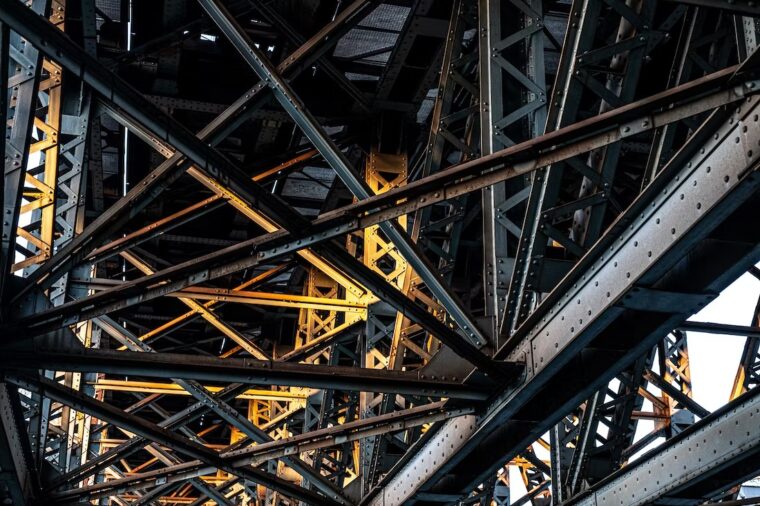Stainless steel is growing in popularity compared to other traditional materials like ceramic, plastic, bricks, wood, or timber. According to recent statistics, stainless steel’s global market size was projected to be 195.75 billion dollars in 2021. Additionally, the market size is expected to grow from 204.17 billion dollars in 2022 to 298.85 billion in 2029.
A stainless steel manufacturer, engineers, specialists, and even designers are profoundly invested in using steel for their project work due to its exceptional qualities, making it a versatile material. Some of the most admired qualities of steel are its powerful tensile strength, adaptability, functionality, aesthetic value, and corrosion resistance.
Check out the various properties of steel that make it a better material than other materials.
Resistant To Corrosion
It is prevalent for materials like wood and iron to get eroded over the years on exposure to atmospheric moisture. However, stainless steel consists of trace amounts of chromium. The chromium substance is known to provide corrosion-resistant properties to steel in environments like high moisture and dampness.
There are majorly two levels of alloys-low grade alloys and high-grade alloys. Low-grade alloys provide excellent resistance in atmospheric moisture and wet environments. However, high-grade alloys are proven to perform powerfully in acidic, alkaline environments. This grade is also resistant to environments exposed to chemicals like chlorine.
Thus, making the material a perfect choice for projects like plant processing industries.
It Requires Low-maintenance

Another significant aspect of stainless steel is that it is an elementary material to clean and disinfect. One can use pure water, mild soap or detergent, a disposable wipe, an air blower, or a nylon brush to get an immaculate surface.
This quality of stainless steel is optimal for health-centered establishments like hospitals, kitchens, restaurants, food processing industries, etc.
It Is Highly Resistant To Fire & Heat
One of the remarkable aspects of stainless steel is it’s highly resistant to high-temperature environments. Stainless steel is made using alloys of chromium and nickel. Such materials aid in preventing scaling at high temperatures significantly. Thus, facilitating in retaining the tensile strength of steel.
Additionally, this material is tremendously used in objects like heaters, boilers, valves, etc. Thus, it is an ideal choice for the aerospace engineering and aircraft manufacturing industries.
It Provides Aesthetic Value To The Establishments

The remarkable fact about steel is that it can be easily molded into various geometric shapes and sizes like hexagons, circles, and many more.
Various world-famous buildings, including Burj Khalifa, the Eiffel Tower, Brooklyn Bridge, Willis Tower, etc., are made of stainless steel. Thus, pertaining to the beauty and strength of such buildings for decades.
Thus, making it a perfect material to get that modern, striking look for the building. Additionally, steel can easily be paired with futuristic styles and designs to enhance buildings’ overall appearance.
Versatile Applications of Stainless Steel
Stainless steel’s versatility extends across numerous industries and applications, showcasing its exceptional qualities.
Architecture and Construction: Stainless steel’s aesthetic appeal and durability make it a preferred choice for architectural wonders like the Burj Khalifa, the Eiffel Tower, and more.
Aerospace and Aviation: Its heat resistance and lightweight properties make stainless steel crucial in aerospace engineering, used in components like heaters, boilers, and valves.
Healthcare and Food Industry: Stainless steel’s easy maintenance and corrosion resistance make it ideal for hospitals, kitchens, and food processing, ensuring hygiene and safety.
Chemical and Manufacturing: High-grade stainless steel’s resistance to corrosive environments finds applications in chemical processing plants.
Potential Limitations of Stainless Steel
While stainless steel offers numerous advantages, it’s essential to be aware of its limitations:
Cost: High-quality stainless steel can be expensive compared to other materials, impacting project budgets.
Weight: Stainless steel is denser than some alternatives, which may affect transportation and structural considerations.
Surface Scratching: Stainless steel surfaces can scratch, potentially affecting its appearance over time.
Maintenance: While it requires less maintenance than other materials, stainless steel is not entirely maintenance-free.
Understanding these aspects ensures informed decision-making in choosing stainless steel for various applications.
The reasons mentioned above truly make stainless steel one of the most desirable materials for several different industries, including construction. The cost of using steel as a construction material can greatly vary, though, due to the fact that it can be utilized for various applications. This blog article regarding Nucor steel building prices went over the factors that come into play when determining the cost of a steel building, including the main advantages that make it worth the cost.
Conclusion
Due to its extraordinary qualities, stainless steel has earned the status of being the ideal material for various commercial, industrial, and residential projects.
Additionally, it is the greenest form of material one can ever find. The products made of steel are recycled 98% of the time and molded into new, innovative products. Thus, completing its entire cycle of life and durability.
